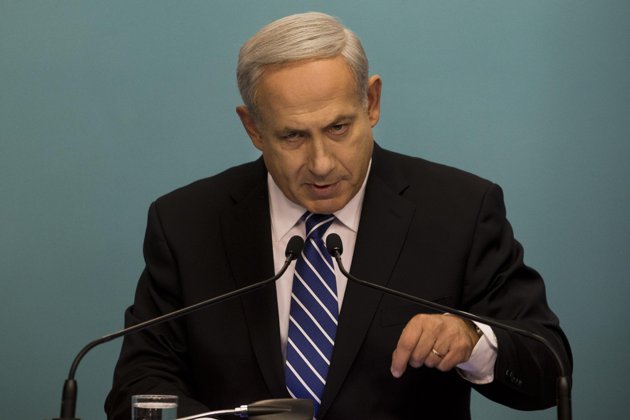Despite criticism from the United States and Europe over Israeli Prime Minister Benjamin Netanyahu’s decision to expand settlement buildings, the Israeli government has said it will stick to the settlements plan in the wake of the United Nations’ de facto recognition of Palestinian statehood.
Washington urged Israel to reconsider its plan to erect 3,000 more homes in the occupied West Bank and East Jerusalem, saying the move stood in the way of peace efforts with the Palestinians.
Other western nations such as Britain, France, Spain, Sweden and Denmark summoned the Israeli ambassadors in their capitals to give similar messages.
An official in Netanyahu’s office said that Israel would not budge. ”Israel will continue to stand by its vital interests, even in the face of international pressure, and there will be no change in the decision that was made,” the official said.
Israel’s decision to build new dwellings for settlers came the day after the U.N. General Assembly voted to upgrade the status of Palestine from “observer entity” to “non-member state”, an angry reaction to the voting.
Such project on land Israel captured in a 1967 war are considered to be illegal by most world powers and have routinely elicited condemnation from them. The two areas are home to approximately 500, 000 Israelis and 2.5 million Palestinians.
Additionally, Netanyahu’s pro-settler government ordered “preliminary zoning and planning work” for thousands of housing units in areas including “E1” zone east of Jerusalem. This shift raised alarm among Palestinians and in world capitals.
This is the first time that such construction in the barren hills of E1 as this is taking place in the face of opposition of the United States, Israel’s main ally. Building in the area could bisect the West Bank, cut off Palestinians from Jerusalem and further dim their hopes for a contiguous state.
Israeli television stations reported Jerusalem’s district planning commission would soon approve plans for several thousand more housing units, including more than 1,000 Israel had shelved two years ago after Washington was angered by the Israelis publishing the plans before a visit by Vice President Joe Biden.
According to the U.N. Secretary-General, Ban Ki-Moon, the settlement would deal an “almost fatal blow” to a two-state solution to the Israeli-Palestinian conflict.
French President Francois Hollande said he was “extremely concerned” and Washington made it clear it could not back such Israeli retaliation over the U.N. vote which had been sought by Palestine after peace talks fell apart in 2010 over settlement building.
“We urge Israeli leaders to reconsider these unilateral decisions and exercise restraint as these actions are counterproductive and make it harder to resume direct negotiations to achieve a two-state solution,” White House spokesman Jay Carney told a briefing.
Germany, considered to be Israel’s closest European ally has urged it to refrain from expanding settlements, ahead of a Netanyahu visit this week, while Russia said it viewed the Israeli moves with serious concern.
Israeli Finance Minister Yuval Steinitz, meanwhile said that Israel could not have been expected to remain indifferent to the unilateral move of the Palestinians at the United Nations.
“I want to tell you that those same Europeans and Americans who are now telling us ‘naughty, naughty’ over our response, understand fully well that we have to respond, and they themselves warned the Palestinian Authority,” he said.
Palestinian chief negotiator Saeb Erakat said building in E1 “destroys the two-state solution, establishing East Jerusalem as the capital of Palestine and practically ends the peace process, and any opportunity to talk about negotiations in the future.”
The United States, who along with seven other countries voted against the Palestinian resolution at the General Assembly, has said both were counterproductive to the resumption of direct peace talks.
In Europe, only the Czech Republic voted against the status upgrade, while many countries, including France backed it. As a result, Prague will play host to Netanyahu who plans to visit this week to express his thanks.
In the Gaza Strip, Sami Abu Zuhri, spokesman for the governing Hamas Islamist movement, called the settlements “an insult to the international community which should bear responsibility for Israeli violations and attacks on Palestinians.”

